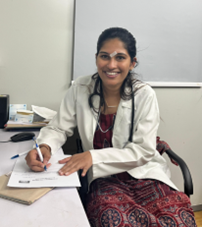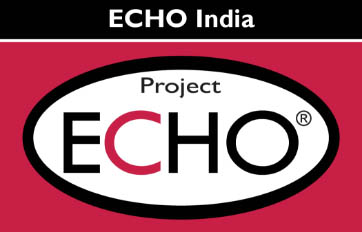How an Integrated Approach to Cardiometabolic Disease is Transforming Primary Care
In the shadow of Bengaluru's gleaming tech campuses and startup incubators, a different kind of innovation is taking root. It is not built on algorithms or venture capital but on a radical reimagining of how doctors approach the epidemic of lifestyle diseases sweeping urban India.
"I used to see disease in fragments," says Dr Harshitha. "Diabetes was one problem, hypertension another. Now I see the whole patient, their entire metabolic story." This paradigm shift is the result of ECHO India's CardioMetabolic Syndrome (CMS) training program, which is silently revolutionizing care for millions in India's Silicon Valley. The initiative comes at a critical time as India faces what public health experts call a perfect storm of chronic conditions tied to urbanization, changing diets, and sedentary lifestyles.
From Fragmented to Integrated Care
Dr Madhusudan, Metropolitan Surveillance Unit (MSU) Nodal Officer, National Vector Borne Disease Control Programme (NVBDCP) Officer, Medical Officer of Health (MOH), Bruhath Bengaluru Mahanagara Palike (BBMP), who has been closely involved with the CMS initiative since its beginning, notes the fundamental shift in approach:
"Earlier, MOs were trained in silos, one session for hypertension, another for diabetes. But CMS takes an integrated approach. Now, doctors look at the patient’s entire cardiometabolic profile. It is no longer about treating symptoms in isolation. This shift has fundamentally changed how care is delivered." he says. This change has created a more proactive clinical culture. Where doctors might once have simply treated high blood pressure readings symptomatically, they now order comprehensive diagnostic profiles including RBS, lipid panels, liver and kidney function tests, enabling earlier interventions and reducing unnecessary referrals.
Measurable Improvements in Patient Care
At Bengaluru's Urban Community Health Centre (CHC), the results are already evident. Dr Pradeep Darge, Physician Clinical Health, has observed a significant decrease in referrals from MOs to specialists. He shares, "Before CMS training, many patients were referred in without a clear diagnosis. Now, MOs are confident in managing CMS-related conditions on their own. Only the most complex cases come to us." This increased capacity at the primary care level has had substantial benefits.
"We are seeing fewer long-term complications like diabetic nephropathy and retinopathy because interventions are timely and lifestyle counselling is stronger. Earlier, MOs would call us during OPD hours for guidance. Now, they are managing independently and confidently," adds Dr Darge.
Success Stories from the Field
Dr Harshitha, Medical Officer at Namma Clinic Kamakshi Palya, serves a population of over 15000 people. She reports that her daily OPD load has more than doubled from 12 to 15 to over 30 to 35 cases, reflecting growing patient trust.
She credits the CMS program with filling important gaps in traditional medical education. "I had a 45-year-old diabetic patient. Instead of just prescribing medication, I counselled him using CMS principles including diet, exercise, and the GLUT4 mechanism behind walking. After a few months, his sugar levels stabilised and we were able to stop his medication. That was a proud moment." she remarks. The program's online format has also been crucial, allowing doctors to participate without disrupting patient care.
 Dr Harshitha, Medical Officer at Namma Clinic Kamakshi Palya, now serves a population of over 15000 as patient trust in the care provided continues to grow.
Dr Harshitha, Medical Officer at Namma Clinic Kamakshi Palya, now serves a population of over 15000 as patient trust in the care provided continues to grow.
She adds, "With better clinical knowledge, I have reduced unnecessary referrals and improved follow-ups. Patients are returning because they trust the care they receive." Despite challenges like limited insulin access, the training has significantly improved care and boosted clinical confidence.
Changing Clinical Mindsets
For Dr Sanjana Jagadeesh, Medical Officer at Namma Clinic in the West Zone, CMS training reshaped her entire approach to care. "The sessions gave me clarity in managing cardiometabolic patients. I remember a 56-year-old male with severely high BP who had avoided allopathy due to myths. With ECHO expert guidance, I tailored his treatment plan and saw clear improvement."
She shares another success, "He was reluctant to begin medication, fearing lifelong dependency. I used the counselling skills from CMS to guide him through lifestyle changes and gradually introduce treatment. He now follows a stable routine."
 Dr Sanjana Jagadeesh, Medical Officer at Namma Clinic West Zone, is encouraging medical care and dispelling myths about allopathy among her patients thanks to her ECHO training.
Dr Sanjana Jagadeesh, Medical Officer at Namma Clinic West Zone, is encouraging medical care and dispelling myths about allopathy among her patients thanks to her ECHO training.
The training has helped her address misconceptions about allopathy and medication and provided tools to identify early risk signs, particularly among young adults in low-resource settings.
A Model for Sustainable Impact
The CMS initiative in Bengaluru demonstrates how structured, case-based learning and ongoing mentorship can effectively reshape public health delivery. By enhancing diagnostic confidence, reducing unnecessary referrals, and building patient trust, the program is strengthening the city’s primary care system.
"This is exactly the kind of training government doctors need. I hope more such initiatives continue because we are ready to serve but we need the tools to do it well," says Dr Harshitha.
In a healthcare landscape often challenged by limited resources and rising chronic disease burden, Bengaluru’s experience offers a promising model for sustainable system-wide improvement.
